After last weekend’s production of Marsha Norman’s 'Night Mother, I’ve been thinking a lot about the question I was asked several times, “Why (or how) choose something so emotionally wrenching to direct?” This is understandable. There were audible sobs closing night when Jessie left the stage to kill herself. Running without an intermission meant that the audience was faced with 1 hour and 40 minutes of emotional intensity without a break. This is exactly what I wanted.
Theatre should not be an end to itself. Theatre is a means to end. For actor, director, audience, and writer it should be a place for self-study and self-exploration, and presenting oneself up as an en emotional sacrifice. Small towns like mine, the cliché goes, are full of secrets, fully embraced. A community production of 'night Mother forces those secrets (or rather those in the same genus) into the open through the emotional sacrifice of the actors. The small audience works because the problems facing the actors and the audience are so great that a larger audience could only lead to a dilution of the work. Theatre critic Peter Brook writes, ". . . the living event creates dangerous electricity -- even if we see this happen all too seldom. But this ancient fear is recognition of an ancient potential. The Theatre is the arena where a living confrontation can take the place. The focus of a group of people creates a unique intensity -- owing to this forces that operate at all times and rule each person's daily life can be isolated and perceived more clearly.” This was no entertainment, this was catharsis.
At one point in the show, I had the actor playing Jesse take as much time as she possibly could taking out, lighting and taking a few drags from a cigarette. The actor playing Mama hated it. “I'm so uncomfortable;” she said, “I don't know what to do while she's doing that.” This, of course, was just what I was looking for. Mama feels that way and the audience feels that way: a sense of powerlessness, and the sense that the audience is only as important as the actor. How many times have you sat through a show that you've seen a dozen times critiquing the small gestures and missteps. “Not as good as the last time,” you say to yourself in an attempt to hold the power all for yourself. “I am in power.” the audience tells itself. “I will judge. I have built a wall that allows me to control what moments puncture through my ennui and effect me” Here, in a small, calculated gesture was my and the actor's chance to puncture that.
While it may seem easy to juxtapose a show like ‘night Mother with other offerings of the community theatre - musicals and children's shows - the popular as opposed to the intellectual, I would argue that we have forgotten that popular entertainment once included bearbaiting and ferocious, angry satire. "I've never been to something like this," one theatre-goer told me afterwards, motioning to the black box space. "You've never been to a musical?" asked her friend. One got it, one didn't.
The first night, the actors and I were surprised to hear laughter. Two reasons accounted for our surprise. First, I insisted on closed rehearsals, so prior to opening night, we hadn't been in front of an audience before. We had no idea how the audience would react, heightening the actors emotional rawness and openness. Secondly, the play is not light and frothy (although there are genuinely amusing moments in the show, nothing, when thought through it "funny".) Light heartedness and gaiety feeds from the same well as rebellion and opposition. The creative energy behind a painting is the same force that drives Jessie to carefully clean her gun in the beginning of the play, before using it at the end.
Brook says it best, “We may want magic, but we confuse it with hocus-pocus, and we have hopelessly mixed up lover with sex, beauty with aestheticism. . . . We need desperately to experience magic in so direct a way that our very notion of what is substantial could be changed . . . Once, the theatre could begin as magic: magic at the sacred festival or magic as the footlights came up. Today it is the other way round. The theatre is hardly wanted and its workers are hardly trusted. So we cannot assume that the audience will assemble devoutly and attentively. It is up to capture its attention and complete its belief."
![]()
![]()







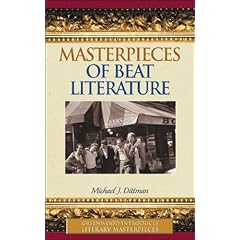
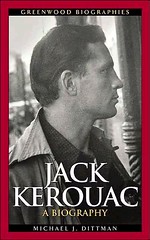
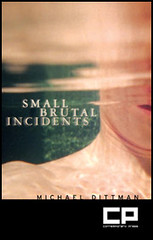


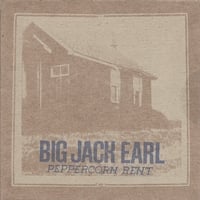
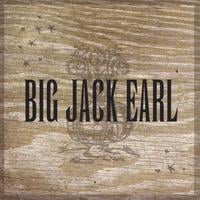
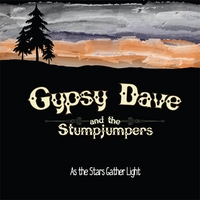
4 comments:
I swear, you always the strangest laugh in a brutal show like that. The audience is looking for any chance to blow off some emotional steam, which leads to that weird, off key laughter.
I found 'night Mother' to be one of the most intense performances I had ever witnessed. The subject of a child's suicide is disturbing enough, but sitting up front really pulled me into the emotional fray. Rosie and Amy were superb. Indeed, the Rosie I knew before the play, was "gone" after the first couple of minutes. She morphed masterfully into Mama, and no doubt Amy assumed the Jessie role with reckless abandon.
Bravo X 1000
John
Thanks so much John!
Mark - I think you're right about that. The actors and I, after the show, likened it to the fact that you always hear people laughing at funeral homes - sometimes you're so uncomfortable, you don't know what else to do...
yes, the laughter was the embarrassed, I have to lighten this moment somehow laughter and also sort of a rueful, hey I recognize myself laughter. You did a perfect job of directing to hold the audience's attention as everything flowed smoothly from one scene to the next. Amy and Rosie were fantastic too
Post a Comment